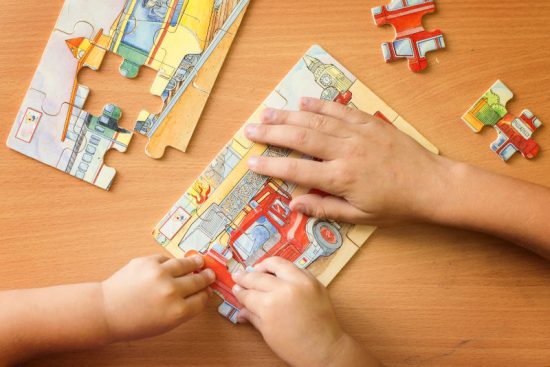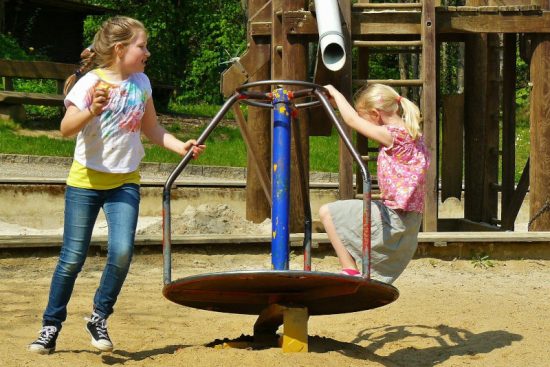
In a world where parenting advice can feel like a game of dodgeball, positive parenting emerges as the ultimate shield. It’s not just about avoiding the pitfalls of traditional discipline; it’s about creating a nurturing environment where kids thrive. Imagine a parenting style that encourages laughter over lectures and connection over correction. That’s the magic of positive parenting.
What Is Positive Parenting
Positive parenting focuses on creating a nurturing and supportive environment for children. This approach emphasizes connection over correction, valuing laughter and engagement as key components of child-rearing. Techniques commonly used include active listening, open communication, and encouragement.
Research shows positive parenting reduces behavioral issues, fosters healthier emotional development, and strengthens parent-child relationships. Parents adopting this style often set clear expectations while remaining empathetic. They prioritize understanding their children’s feelings and perspectives, allowing space for expression without fear of punishment.
Building a positive atmosphere involves acknowledging children’s successes, no matter how small. Celebrating achievements encourages confidence and self-esteem. Incorporating routines helps establish security, while flexibility allows adaptation to children’s evolving needs.
Strategies such as positive reinforcement strengthen desired behaviors. Offering praise for accomplishments instills motivation. Instead of focusing on the negative, parents highlight positive actions, guiding children toward better choices.
Modeling respect and kindness shapes children’s behavior as they learn by observing. Consistent communication builds trust, promoting open dialogue about feelings and concerns. Resources and workshops on positive parenting provide parents with tools and techniques to enhance their skills further.
Understanding the importance of emotional support leads to healthier outcomes for children. Parents who engage with empathy foster resilience, teaching children how to cope with challenges. Overall, positive parenting cultivates a loving environment essential for developing well-adjusted individuals.
Key Principles of Positive Parenting

Positive parenting emphasizes nurturing and supportive approaches to child-rearing. Its key principles include encouragement over punishment and consistent communication.
Encouragement Over Punishment
Encouragement fosters a positive atmosphere. Using praise for good behavior motivates children to repeat those actions. Parents focus on recognizing efforts instead of only pointing out mistakes. Celebrating small achievements builds confidence and self-esteem in children. Natural positive reinforcement allows for more open dialogue about behaviors. Research shows that children respond better when surrounded by encouragement rather than punishment. Adopting this principle strengthens the bond between parent and child. Observing their efforts leads to a greater willingness to learn and grow.
Consistent Communication
Consistent communication creates a foundation of trust. Parents engage in regular dialogues about feelings, expectations, and boundaries. Listening actively allows for better understanding of a child’s perspective. Openness encourages children to express themselves freely without fear of judgment. Routine conversations build familiarity and strengthen emotional ties. Adapting communication styles to suit developmental stages enhances effectiveness. Providing clear, age-appropriate information helps children grasp expectations. A supportive environment fosters healthy relationships and encourages emotional regulation.
Benefits of Positive Parenting
Positive parenting offers several advantages that significantly impact children’s development.
Strengthening Parent-Child Bonds
Strengthened relationships emerge from positive interactions between parents and children. Consistent encouragement builds trust, allowing children to feel safe while expressing emotions. Enhanced communication contributes to deeper connections as families engage in meaningful conversations. Enjoying shared activities fosters a sense of belonging and unity within the family unit. Children who experience strong bonds often demonstrate higher emotional intelligence and better social skills. Increased emotional support also cultivates a safe space for open dialogue, helping kids navigate their feelings with confidence.
Fostering Independence and Resilience
Independence flourishes in children raised under positive parenting principles. They learn to solve problems, make choices, and face challenges effectively. Encouragement serves as a motivational factor, allowing children to take calculated risks while developing self-confidence. As kids encounter obstacles, resilience becomes a critical trait that helps them cope with adversity. Understanding that mistakes are part of learning enables them to view setbacks as growth opportunities. Positive parenting cultivates a mindset focused on solutions, further enhancing their ability to adapt and thrive in different environments.
Techniques for Implementing Positive Parenting
Positive parenting employs various techniques to nurture children effectively. These methods foster connection while promoting healthy development.
Active Listening
Active listening involves fully engaging with children during conversations. Empathy plays a crucial role, as showing understanding of their thoughts and feelings strengthens relationships. Parents can reflect back on what children express, which validates their emotions. Using open-ended questions encourages children to share more, enhancing communication. Acknowledging their experiences builds trust, making children feel heard and respected. Implementing active listening fosters a deeper connection, creating a safe space for children to express themselves freely.
Setting Clear Expectations
Setting clear expectations provides children with a roadmap for behavior. Parents should communicate rules and guidelines clearly to avoid confusion. Using age-appropriate language ensures children understand what’s required. Consistency is key; consistently reminding them of these expectations reinforces understanding. Encouraging children to participate in establishing rules fosters a sense of ownership. Involving them in the process promotes accountability. When expectations are clear, children can navigate their environment confidently, knowing what’s expected of them.
Challenges of Positive Parenting
Implementing positive parenting often presents unique challenges. Parents may find it difficult to maintain consistent communication amidst the chaos of daily life. Stressful situations can lead to moments of frustration, making it harder to focus on encouragement over correction.
Managing behavioral issues poses a common obstacle. Parents sometimes face defiance or outbursts from children who are still learning emotional regulation. Navigating these instances without resorting to traditional discipline can become overwhelming.
Balancing empathy with discipline remains crucial. Parents frequently struggle to set boundaries while providing emotional support. There’s a fine line between nurturing and allowing children to test limits. Finding this balance can prove complex, especially during challenging developmental stages.
Maintaining patience is vital. Parents often deal with setbacks, feeling discouraged when progress seems slow. Time and practice are essential in building effective positive parenting skills, but some may lose sight of this during tough times.
Work-life commitments can also interfere. Busy schedules leave little time for meaningful interactions, making it challenging to reinforce positive behavior. Prioritizing quality time dedicates opportunities for connection, but parents frequently juggle multiple responsibilities.
Accessing resources for positive parenting may present difficulties too. Limited availability of workshops or support systems can hinder parents looking to improve their techniques. Finding trusted sources for guidance ensures adherence to the principles of positive parenting, but navigating these options can feel daunting.
Overall, these challenges emphasize the need for continual learning and adaptation in the practice of positive parenting. Embracing each situation as a learning opportunity fosters growth in both parents and children, strengthening their bond and ensuring emotional development.
Conclusion
Positive parenting offers a transformative approach that nurtures both children and parents. By prioritizing connection and emotional support it cultivates a loving environment where children can thrive. This method not only strengthens parent-child relationships but also fosters resilience and independence in children.
Emphasizing encouragement over punishment creates a positive atmosphere that boosts self-esteem and emotional intelligence. While challenges may arise in implementing these techniques consistency and patience are key. Engaging with available resources can further enhance positive parenting skills.
Ultimately adopting positive parenting principles lays the foundation for well-adjusted individuals ready to navigate life’s challenges with confidence and empathy.




